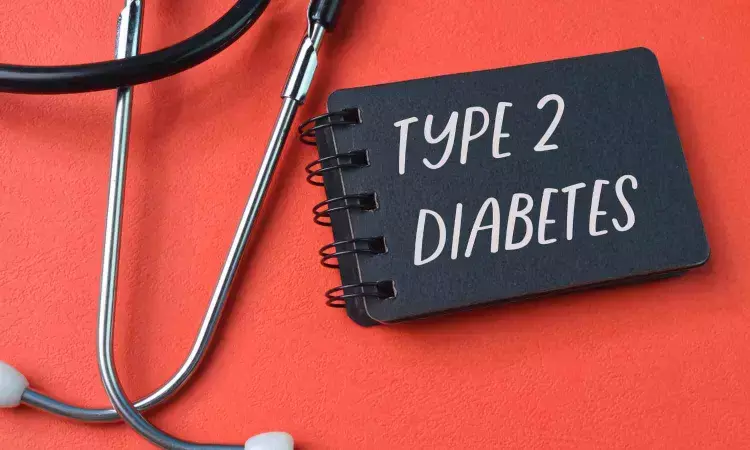- Home
- Medical news & Guidelines
- Anesthesiology
- Cardiology and CTVS
- Critical Care
- Dentistry
- Dermatology
- Diabetes and Endocrinology
- ENT
- Gastroenterology
- Medicine
- Nephrology
- Neurology
- Obstretics-Gynaecology
- Oncology
- Ophthalmology
- Orthopaedics
- Pediatrics-Neonatology
- Psychiatry
- Pulmonology
- Radiology
- Surgery
- Urology
- Laboratory Medicine
- Diet
- Nursing
- Paramedical
- Physiotherapy
- Health news
- Fact Check
- Bone Health Fact Check
- Brain Health Fact Check
- Cancer Related Fact Check
- Child Care Fact Check
- Dental and oral health fact check
- Diabetes and metabolic health fact check
- Diet and Nutrition Fact Check
- Eye and ENT Care Fact Check
- Fitness fact check
- Gut health fact check
- Heart health fact check
- Kidney health fact check
- Medical education fact check
- Men's health fact check
- Respiratory fact check
- Skin and hair care fact check
- Vaccine and Immunization fact check
- Women's health fact check
- AYUSH
- State News
- Andaman and Nicobar Islands
- Andhra Pradesh
- Arunachal Pradesh
- Assam
- Bihar
- Chandigarh
- Chattisgarh
- Dadra and Nagar Haveli
- Daman and Diu
- Delhi
- Goa
- Gujarat
- Haryana
- Himachal Pradesh
- Jammu & Kashmir
- Jharkhand
- Karnataka
- Kerala
- Ladakh
- Lakshadweep
- Madhya Pradesh
- Maharashtra
- Manipur
- Meghalaya
- Mizoram
- Nagaland
- Odisha
- Puducherry
- Punjab
- Rajasthan
- Sikkim
- Tamil Nadu
- Telangana
- Tripura
- Uttar Pradesh
- Uttrakhand
- West Bengal
- Medical Education
- Industry
Pioglitazone add-on therapy in patients with type 2 diabetes effective and safe option for better glycemic control: Study

South Korea: Adjunctive pioglitazone therapy in type 2 diabetes mellitus (T2DM) inadequately controlled with dapagliflozin and metformin yielded considerable metabolic benefits, glycemic improvement, and a low hypoglycemia risk, a phase 3 trial showed. The findings were published online in Diabetes, Obesity and Metabolism on February 29, 2024.
The researchers, however, suggest weighing its advantages against the potential for weight gain and increased waist circumference.
"In the randomized, placebo-controlled study, pioglitazone add-on therapy was tied to a significantly reduced fasting plasma glucose (FPG), HbA1c, and postload glucose at 120 min versus placebo in patients with uncontrolled T2DM on metformin and dapagliflozin therapy," the researchers reported. "This led to greater achievement of the glycaemic target goal of HbA1c < 7.0%: 39.5% vs. 20.5%."
Additionally, the researchers noted a significant decrease in insulin levels and HOMA-IR and an increase in adiponectin levels in the pioglitazone group, which were not found in the placebo group.
Type 2 diabetes is a complex disease with multiple pathophysiologies. Evidence indicates that only one-third to one-half of diabetes patients achieve their glycemic targets, underscoring the persisting difficulties in ensuring optimal glycemic control. A third agent is commonly needed if the glycemic target is not reached even with two-drug combination therapy.
It has yet to be determined which antidiabetic agent would be best for patients already treated with metformin and a sodium-glucose cotransporter-2 (SGLT2) inhibitor. Sungrae Kim, The Catholic University of Korea, Bucheon, South Korea, and colleagues investigate the safety and efficacy of pioglitazone compared to a placebo when added to metformin plus dapagliflozin, an SGLT2 inhibitor, for patients with type 2 diabetes.
For this purpose, the researchers conducted a multicentre study, with a randomized, double-blind, placebo-controlled design comprising 249 Korean patients with T2DM suboptimally managed on dapagliflozin and metformin. They were assigned to receive either pioglitazone (15 mg daily) or placebo for 24 weeks, followed by an extension of a 24-week pioglitazone.
The study's primary outcomes were changes in glycated hemoglobin (HbA1c). Secondary outcomes assessed adiponectin levels, insulin resistance, lipid profiles, body weight, liver enzymes, and waist circumference.
The study revealed the following findings:
- Pioglitazone administration resulted in a significant reduction in HbA1c levels (from 7.80% ± 0.72% to 7.27% ± 0.82%) compared with placebo (from 7.79% ± 0.76% to 7.69% ± 0.86%) at 24 weeks.
- Additional benefits from pioglitazone treatment included increased adiponectin levels, enhanced insulin sensitivity, raised high-density lipoprotein cholesterol levels, and reduced liver enzyme levels, resulting in improved nonalcoholic fatty liver disease liver fat score.
- Pioglitazone therapy was modestly but significantly associated with weight gain and increased waist circumference despite no serious adverse events in either group.
"Our study findings suggest that pioglitazone could be a safe and effective option for better glycaemic control in patients with type 2 diabetes treated with metformin and SGLT2 inhibitors," the researchers concluded.
Reference:
Lim S, Lee SH, Min KW, Lee CB, Kim SY, Yoo HJ, Kim NH, Kim JH, Oh S, Won JC, Kwon HS, Kim MK, Park JH, Jeong IK, Kim S. A multicentre, double-blind, placebo-controlled, randomized, parallel comparison, phase 3 trial to evaluate the efficacy and safety of pioglitazone add-on therapy in type 2 diabetic patients treated with metformin and dapagliflozin. Diabetes Obes Metab. 2024 Feb 29. doi: 10.1111/dom.15526. Epub ahead of print. PMID: 38425186.
Dr Kamal Kant Kohli-MBBS, DTCD- a chest specialist with more than 30 years of practice and a flair for writing clinical articles, Dr Kamal Kant Kohli joined Medical Dialogues as a Chief Editor of Medical News. Besides writing articles, as an editor, he proofreads and verifies all the medical content published on Medical Dialogues including those coming from journals, studies,medical conferences,guidelines etc. Email: drkohli@medicaldialogues.in. Contact no. 011-43720751


